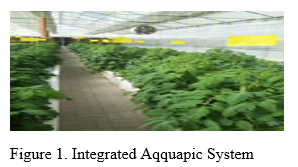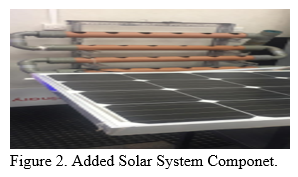AQUAPONICS AND RENEWABLE ENERGY SYSTEMS INTEGRATION IN THE UNITED ARAB EMIRATES
United Arab Emirates (UAE) government offers and support business opportunities for small and medium size entrepreneurships to explore and expand aquaponics projects that are relevant to addressing the country’s food security challenges. The UAE government goal is to support the development of projects that can succeed and become sustainable under conditions of scarce natural resources such as lack of usable water and fertile land and reduce energy consumption.
The first objectives of this research is to describe the advantages of the aquaculture and aquaponics and fish-vegetables integrated systems based on several technical and economic indicator. The second objective estimates the Total Revenue (TR), Variable Costs (VC), Fixed Cost (FC), and Net Return per the integrated renewable (solar) energy system when assuming growing Tomatoes and raising Tilapia fish (Oreochromis niloticus).
The system is suitable for UAE due to the scarce natural resources conditions. The case study describes the advantages of the fish-vegetables integrated system based on on-site experiments.
The exploratory study findings showed that:
1- The project addresses UAE Food Security elements of availability and accessibility.
2- Business proposition of the project showed economic viability of the integrated system at the scale of a greenhouses when the system is operating of –the-grid relying on solar system – Figure 1.
3-Prodcut/Technology description indicated the need for appropriate battery to enable continuity of power source day and night for both the cooling system and fish tanks water pumps – Figure 2.
4- Sustainability analysis upon scaling summarizes the advantages and disadvantages of the economic size of the system.

